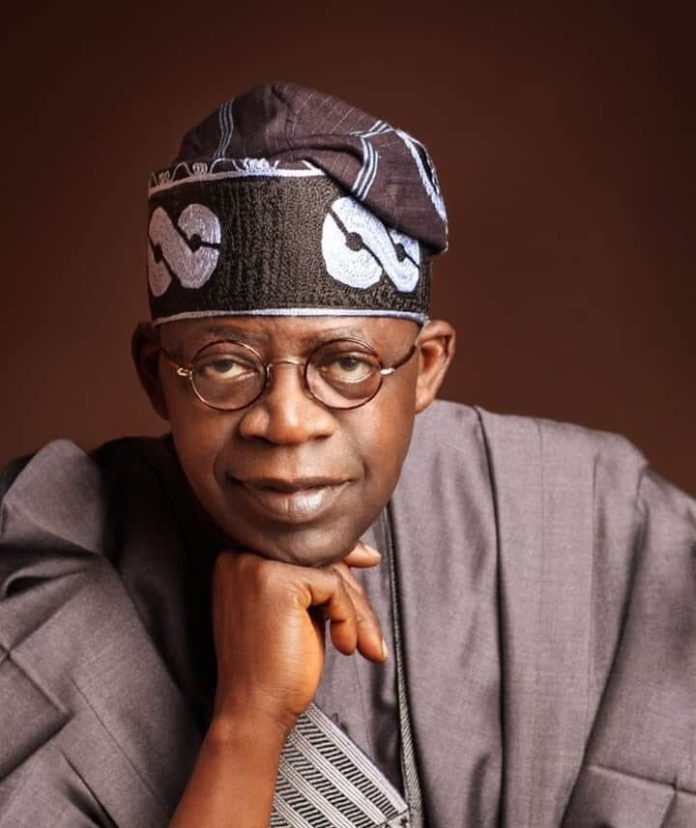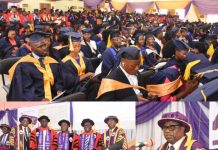
Nigerian President Bola Tinubu has said that the clerk at Chicago State University (CSU) created appearance differences in his certificate with several unfortunate errors in the diploma certificate issued in response to the subpoena by Atiku Abubakar of the Peoples Democratic Party (PDP) requesting Tinubu’s files with the university.
Tinubu said the university is responsible for ‘blatant irregularities’ that characterised a certificate the school reprinted in his name, saying that the unnamed clerk of the CSU “unfortunately” made the errors regarding the dates the school stated on his certificate and when he actually graduated, thereby creating “the appearance of differences.”
President Tinubu’s statement was filed on Wednesday by his counsel as part of his argument before the United States District Court for the Northern District of Illinois in Chicago, The People’s Gazette reports.
Judge Jeffrey Gilbert of the United States District Court for the Northern District of Illinois in Chicago, had given Tinubu until August 23 to explain why his academic records at CSU should not be released to his political opponent Atiku.
Atiku earlier this month requested court approval to subpoena Tinubu’s files domiciled with CSU because he believed the documents would clarify glaring inconsistencies in the President’s background, including publicly-available documents that suggested the CSU in the 1970s admitted a female student bearing Bola Tinubu, who was born on March 29, 1954.
President Tinubu said he was born on March 29, 1952, although he had also, at different times, listed 1954 as his birth year in the past.
He also recently removed his primary and secondary education from his records after it was discovered that the schools he listed under oath in 1999 when he ran for the Lagos State governor election did not exist anywhere in Nigeria.
Atiku believed the requested records would show which papers Tinubu submitted to CSU before he was admitted to study accounting at the school.
Atiku had filed a court application to obtain Tinubu’s school records under a U.S. statute that allows documents available in the country to be subpoenaed for use as evidence in a foreign court.
He argued that Tinubu had presented contradictory claims in Nigeria and the CSU, in responding to a previous subpoena, had issued documents that contradicted what Mr Tinubu had entered under oath in Nigeria.
However, Tinubu’s legal team at the Presidential Election Petition Tribunal, led by Oluwole Afolabi and Christopher Carmichael, argued that the August 2022 subpoena that was issued following a request by a Nigerian lawyer Mike Enahoro-Ebah was “illegal” because he had no valid grounds to seek the documents, especially under education privacy rights.
However, Tinubu’s legal team admitted that the documents indeed emanated from the CSU but an unnamed clerk had mistakenly typed the graduation date erroneously.
Tinubu’s lawyers said, “Unfortunately, in responding to the illegal and invalid subpoena, CSU made several errors. CSU issued a new diploma for Bola A. Tinubu, but incorrectly wrote the date of graduation as June 27, 1979.”
They further noted that changes in school-authorised signatories and logos, alongside other anomalies like the fonts of the certificate, all combined to generate an appearance of wrongdoing.
The lawyers said, “The correct date was June 22, 1979, but that scrivener’s error – along with a change in the CSU logo, the font on the diploma, and leadership at CSU who signed the diploma created the appearance of differences between an earlier issued diploma and the one issued in response to the 2022 subpoena.”
Atiku has said that he filed the suit because he wanted to get the school to certify all documents relating to Tinubu, some of which had been filed by Tinubu’s lawyers in Nigerian court as part of the ongoing election petitions proceeding as Atiku challenges the election of Tinubu.
On his part, Tinubu argued that Atiku should not be requesting the documents because Tinubu’s academic records were not part of the initial litigation over the presidential election, adding that Atiku’s argument had been focused entirely on cheating and other irregularities around the conduct of the election.
Tinubu further argued that the Nigerian court hearing the election petitions had already concluded hearing on arguments and a judgment is now being anticipated, as the election petition court is expected to deliver judgment on or before September 21, in line with the Nigerian electoral law that mandates the conclusion of a petition within 180 days after the election.
Atiku’s legal team led by Chicago-based attorney, Angela Marie Liu, is expected to file a response to Tinubu’s argument that the documents should not be sought because they were not part of the Nigerian proceeding and would be inadmissible due to the current stage of the case.















